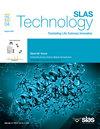联合测试中复杂系统需求与设计的基于模型的交互式可视化。
IF 2.5
4区 医学
Q3 BIOCHEMICAL RESEARCH METHODS
引用次数: 0
摘要
本研究提出了一种基于交互式可视化的基于模型的系统工程(MBSE)技术,该技术专门用于处理联合测试环境中的需求分析和设计问题。标准化的操作需求描述、测试需求分析、测试设计和第一个测试系统计划生成是构成该技术的四个主要阶段。这种方法通过利用交互式可视化技术,为操作和测试需求提供了更彻底、更容易接近的描述。这使得测试人员能够更准确、更有效地开发、可视化和改进测试计划。该方法在增强联合测试平台能力方面的有效性通过对联合测试的全面案例研究得到了证明。测试结果中更高级别的准确性和可靠性最终是该方法对需求分析、测试设计以及复杂系统内联合测试的一般执行和评估的强有力支持的结果。本文章由计算机程序翻译,如有差异,请以英文原文为准。
Model-based interactive visualization for complex systems requirements and design in joint tests
This study presents an interactive visualization-based Model-Based Systems Engineering (MBSE) technique that is especially designed to handle requirements analysis and design issues in joint test settings. Standardized operational requirement description, test requirement analysis, test design, and first test system plan generation are the four primary phases that make up the technique. This method provides a more thorough and approachable depiction of both operational and test requirements by utilizing interactive visualization techniques. This makes it possible for test staff to more accurately and efficiently develop, visualize, and improve test plans. The methodology's efficacy in augmenting the capabilities of joint testing platforms is demonstrated through a thorough case study of a joint test. Higher levels of accuracy and dependability in test results are eventually a result of this approach's strong support for requirements analysis, test design, and the general execution and assessment of joint tests inside complex systems.
求助全文
通过发布文献求助,成功后即可免费获取论文全文。
去求助
来源期刊

SLAS Technology
Computer Science-Computer Science Applications
CiteScore
6.30
自引率
7.40%
发文量
47
审稿时长
106 days
期刊介绍:
SLAS Technology emphasizes scientific and technical advances that enable and improve life sciences research and development; drug-delivery; diagnostics; biomedical and molecular imaging; and personalized and precision medicine. This includes high-throughput and other laboratory automation technologies; micro/nanotechnologies; analytical, separation and quantitative techniques; synthetic chemistry and biology; informatics (data analysis, statistics, bio, genomic and chemoinformatics); and more.
 求助内容:
求助内容: 应助结果提醒方式:
应助结果提醒方式:


